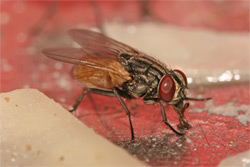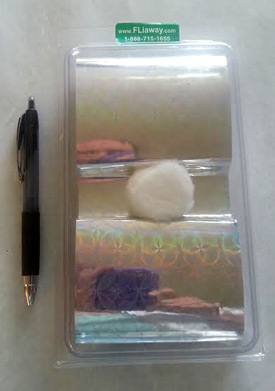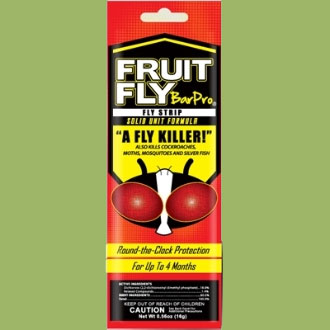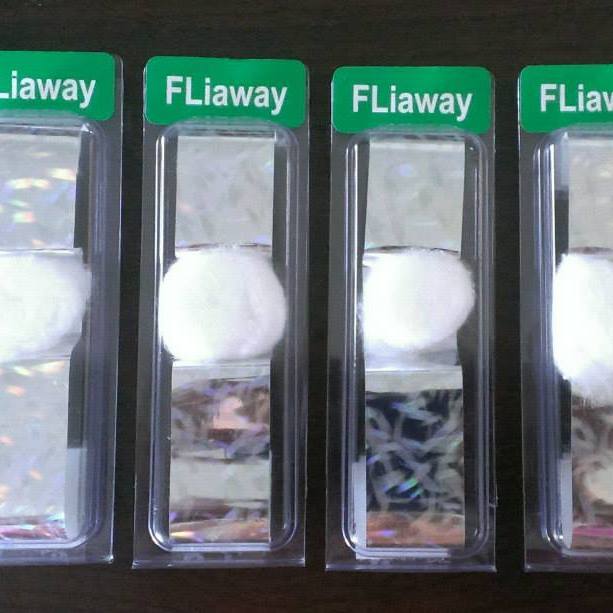
Flies are known for Carrying Disease
Everyone knows that house flies aren’t welcome around food. But University of Florida scientists have discovered five new reasons why.
Researchers with UF’s Institute of Food and Agricultural Sciences have documented five more bacteria species carried by house flies, and all of them cause illness in humans, ranging from food poisoning to respiratory infections.
In the current issue of Florida Entomologist, the researchers describe collecting house flies near rear entrances and trash bins at four restaurants in Gainesville. About 20 flies from each location were collected in sterile containers and returned to the campus laboratory.
The team used fatty acid analysis and DNA sequencing to identify a total of 11 pathogens carried by the flies – five of them not previously linked to house flies: Acinetobacter baumanni, Bacillus pumilus, Cronobacter sakazakii, Methylobacterium persicinum and Staphylococcus sciuri.
The findings reinforce the notion that fly control is key, especially around food sources, said UF’s Jerry Butler, a retired entomology professor who led the research team.
“People need to know that there’s a reason for health requirements in restaurants,” he said. “Most people have a good immune response, but there are those who are susceptible.” They include infants, seniors and people whose immune systems are compromised by illness or chemotherapy.
Fly control is a day-to-day battle because the insects are so mobile, traveling up to 10 miles in just a couple days’ time, Butler said.
Until this study, house flies were known to carry some 200 bacteria. But both Butler and researcher Jim Maruniak, a UF associate professor of insect pathology, said they expect additional research would turn up even more.
“It just shows you don’t need a lot of flies to contaminate food sources,” Maruniak said.



